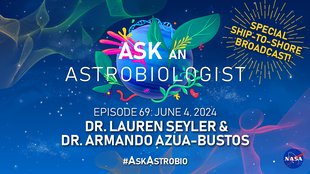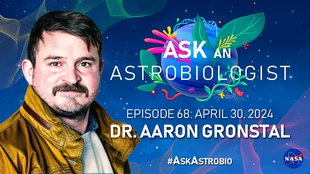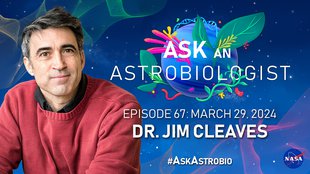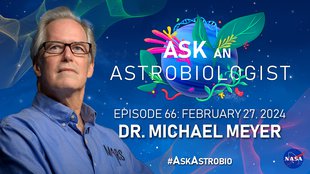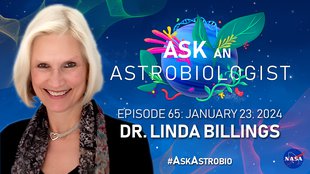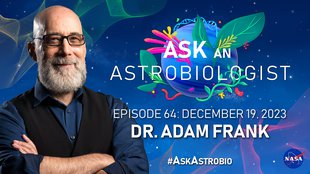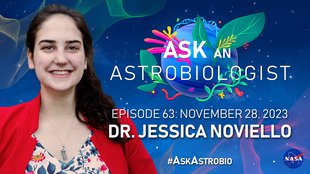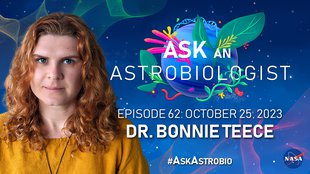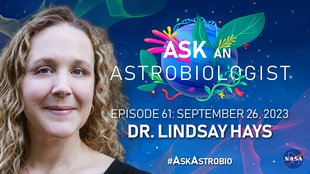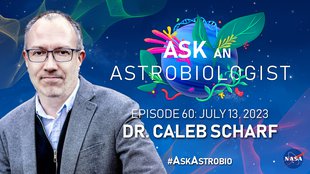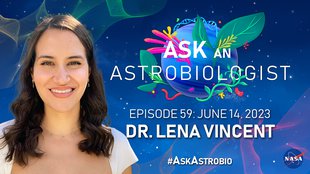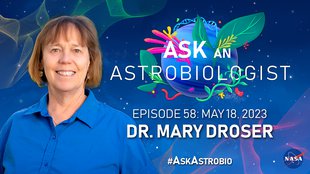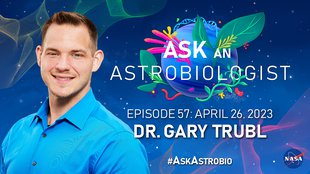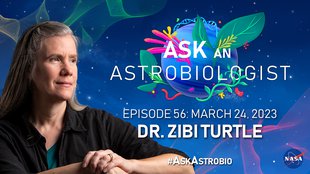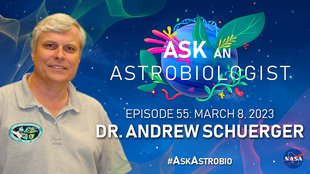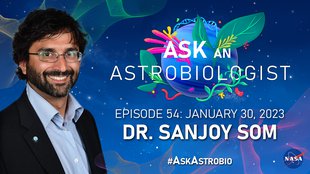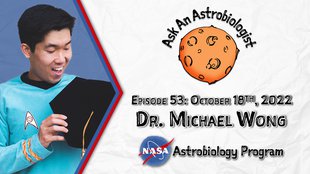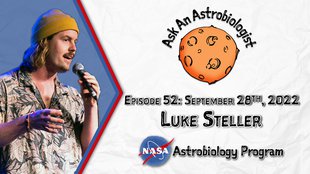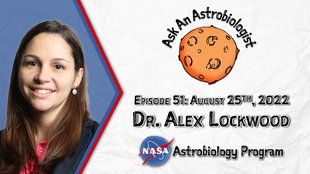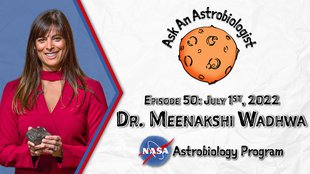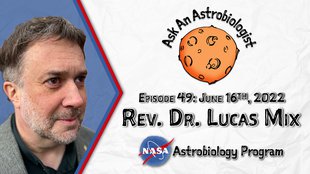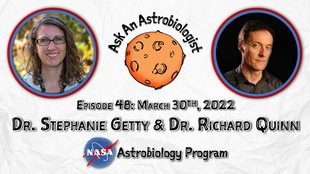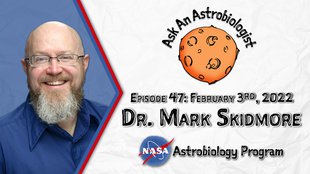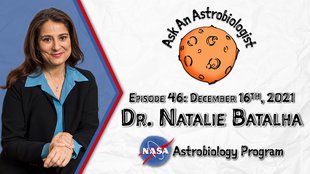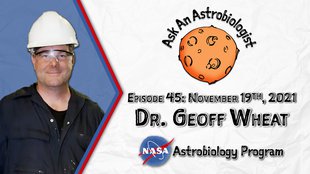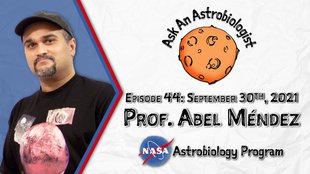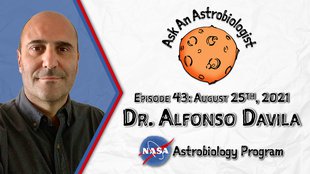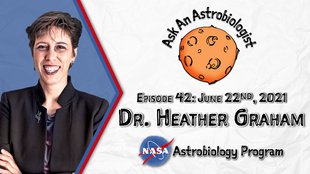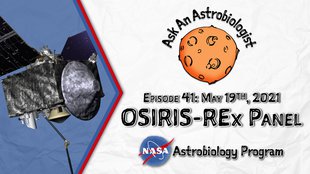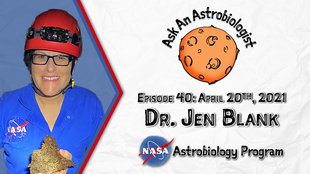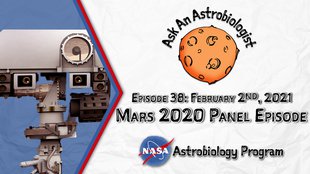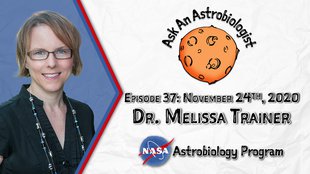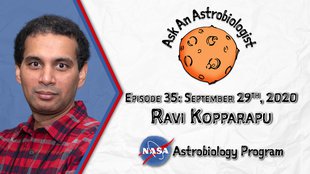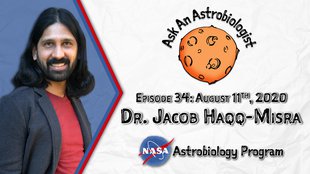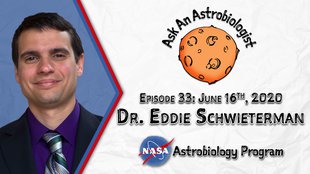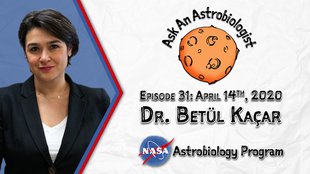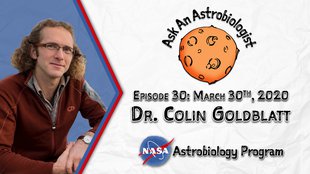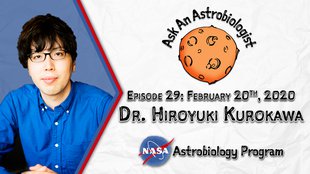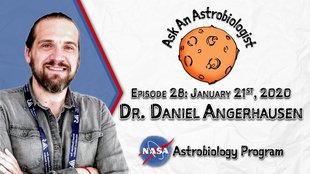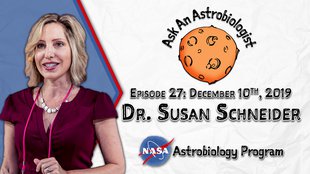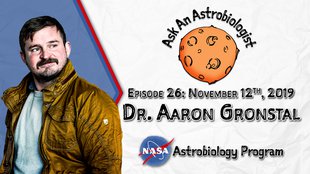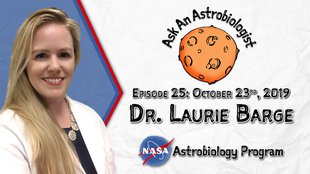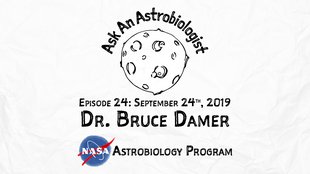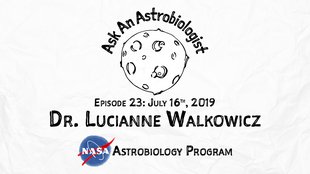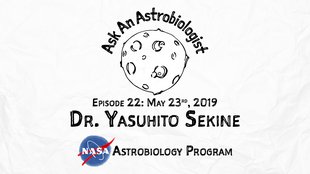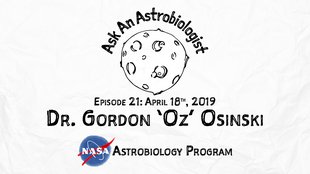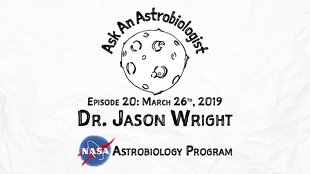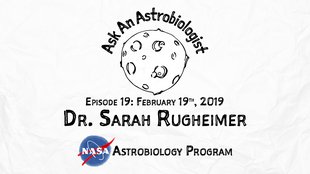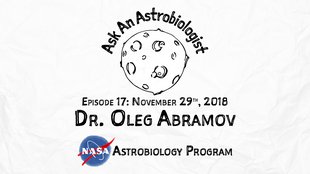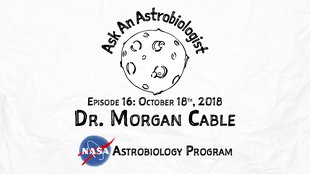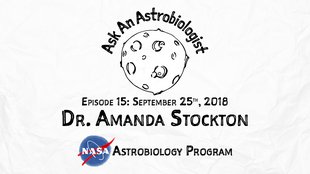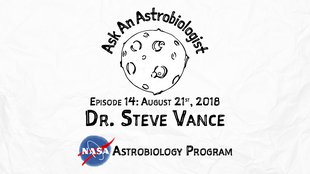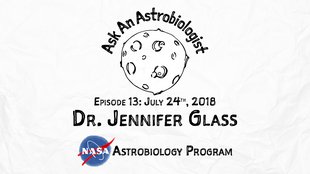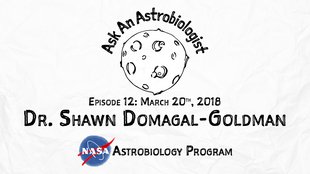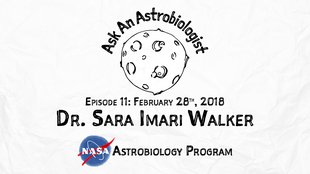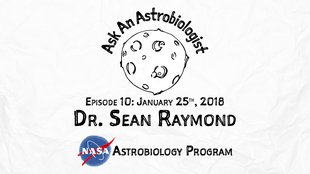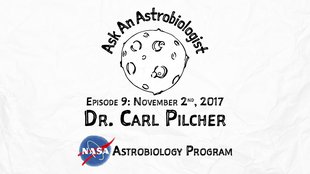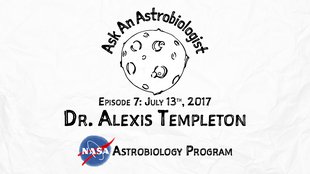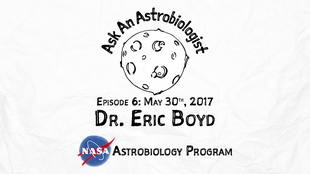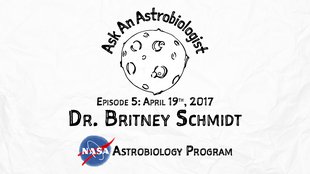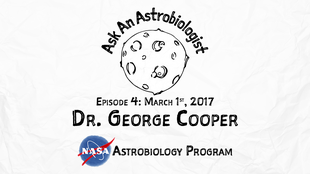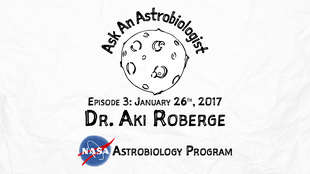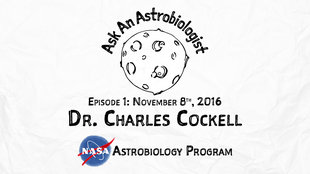
We welcome to SAGANet Dr. Juan Pérez Mercader, Founder & former Director of the Centro de Astrobiologia and current Professor at Harvard University!
Aired December 6, 2016Hello friends of astrobiologists, welcome back to our monthly series, Ask an Astrobiologist, from saganet.org. Every month we get together and interview a renowned scientist from all over the world, and this month we are privileged to have Juan Pérez Mercader, who is a senior research fellow at Harvard University, and has a distinguished international career. You will see that he has worked on many different things. Hi, my name is Sanjoy, I'm connecting from NASA Ames Research Center. And Ask an Astrobiologist is made possible by opportunities given to us by the NASA Astrobiology Program, by ELSI, the Earth Life Science Institute at Tokyo Tech, as well as the non-profit Blue Marble Space.
Other Recent Episodes
Ocean World Science Aboard the Ship 'Falkor Too' with Drs. Lauren Seyler & Armando Azua-Bustos
The Art of How to Become an Astrobiologist with Dr. Aaron Gronstal
How & When Do Molecules Become Life with Dr. Henderson "Jim" Cleaves
You remember my background from last month? It was the planet Mercury, and this month it's a beautiful lake, and I will tell you what it is the next series, which will be in January.
Professor Mercader is a former administrator, scientist, physicist, and today completely I think imbued in the discipline of astrobiology, because he does many different things. But before we go into his career, first of all, welcome Juan. Thanks for being with us today.
Thank you very much and everybody else who's watching. No matter where you are, what time of the day, or what day it is. Here we are, and it's a pleasure to be with you, it's a pleasure also to be participating in this series with you. I'm very much looking forward to your questions and to my answers, and to really enjoy myself while talking science, and talking a little bit about the life of a scientist.
For those of you who are watching, don't forget you can ask questions at saganet.org, on the chat there, as well as use the hashtag "#AskAstroBio" on Twitter. So let's turn back the wheels of time a little bit, Juan. You were born, if I remember correctly, in the town that Christopher Columbus set off from, so you have an ingrained explorer that's in you. I was wondering if you could take us a little bit through your childhood, and through the events that led to the scientific mind, developing into the scientist you are today.
I was born in southwestern Spain, I was born next to a very well-known city which is called Seville. I was born in a small town, which is called [inaudible] but that's where my parents lived, this was 1947 when I was born. There had been a civil war in Spain, and my father and mother, the only place where my mother could give birth in a place where the child could be take care of, at least in the first few days, was where her grandparents lived, which was this little town. And there I grew, and then we meandered after that. My parents, took my sister and my brother in a little trek around towns nearby to find jobs.
Eventually, he was mandated to move to a place called Huelva, which was a few kilometers away from the Rio Tinto, Huelva has two rivers, the Rio Tinto on the east, and the River Odile on the west. Across from the Rio Tinto is a town called Palos de la Frontera, "Stakes at the border," which is a place where Columbus left for the Americas. Next to it, there's a convent called La Rabida, which is where he did his studies and his work, preparing his exploration that eventually led to the discovery of the Americas, thinking that he had discovered Japan.
That's where I grew up, and that's where by age three I was playing in the marshes, there were marshes there, and became extremely interested, for whatever reasons, I became extremely interested in rocketry. And then to understand rockets, I would need to understand a little bit of chemistry, because the operated with powder. Then to understand chemistry, I would need to go deeper. Then I became interested in physics. Then eventually, I went to the University of Seville, which is the only university I could attend because of the location where I lived in southern Spain, and then I studied physics. And you can ask any other thing you want, I just don't want to be long-winded.
You mentioned Rio Tinto in your little description there, which is a very famous site for astrobiology. It was not very well-known in the astrobiology community in the early days, but I think you took the steps to really make it a site of research for the astrobiology community. Could you describe a little bit about how that came to be, and why Rio Tinto is interesting?
Rio Tinto's interesting because it contains many forms of life which occur together in extreme conditions, extremely acidic conditions, and a large number of heavy metals which occur in the river. It's easy to characterize to make it accessible for research. In the 1990s, 1994 I think it was, I gave a talk in a cultural center in Madrid about something I was working on at the time, which had to do with the critical structure of the universe, and predicting the fractal structure of galaxies, and so on and so forth. There were three talks. I gave the second one, the first one was given by a guy whose name is Ricardo Mills, who is a biochemist, or ... he is many things besides a good friend. Then, he's an astrobiologist.
He gave a talk, and he presented the river and all the work he was doing with the people on the river, and all that. And that stuck to my mind, and it stuck to my mind: extremophiles, and it stuck to my mind the river, of course. This is where I grew up, and I knew the waters extremely well, and the region extremely well. I know it to this state, I know it like the palm of my hand.
A few years later I became interested through discussions with other colleagues, mostly Los Alamos National Laboratories in the summers, I became interested in understanding why does biology exist on earth? Why does life exist on earth? And many questions came to our mind, and then I realized that extremophiles could be an interesting way of testing some of the adaptation, and the habitability, and so on, of living systems. Then, I started putting a group of people together who included Ricardo, and then we started thinking about Rio Tinto as a test bed, and that's how it started. Ricardo and his colleagues have done extraordinary work there, I made sure that things worked when I started the Center for Astrobiology, and I made sure that they had the right problems to work on. But I would suggest the problem, they would just go ahead, do the things, and I of course have never signed a paper with them.
We'll talk about the Center for Astrobiology in a bit. Going back to your university career, you were a physicist first, right? And your work led to some contributions that were necessary to find the Higgs boson, if I understand, right? Could you tell us about your path in university, what you were involved with, what courses you took that led to the mind you have today?
Well, I went to the University of Seville, and I enrolled in physics. So I started studying physics, and then I realized that I could actually do mathematics very well, and do physics also well. But I had a problem, and the problem is I was distracted by a tremendous inclination to do theory, but also a tremendous inclination to do experiments. So I also started taking courses in electronics, there was a specialty in electronics, and a specialty in theoretical physics. So I started studying both things, and I decided towards the end that I would do theoretical physics. It turned out that in those years, studying physics required the baccalaureate, required five years. When I was on the third year, it turned out that when I was about to begin the third year, it turned out that the professors who knew theoretical physics there left for a more prestigious university in Spain. And instead of being an assistant professor, instead of being on that track to associate professorship and full professorship.
We were forced, the students in the third, the fourth, and the fifth year, we didn't have the means money, or the permissions from the regime, the political regime then, to go out of Seville. We were forced to actually teach ourselves the courses. So when I was studying the third year and I mentioned this, it's very important, and I realized that your program is going to be viewed by many people. In many different circumstances. And this is a message of hope that I'm giving just by singling out and talking in a little bit of detail about this particular path of my life.
What turned out is that about 20 or 30 students who were studying physics, the baccalaureate in physics at the time, in both specialties, we had to actually teach each other. So we began to teach. Somebody taught, for example, genetic differential geometry, someone else spoke a little bit about quantum mechanics, and I started thinking and talking about something which I found a passion, which was quantum free theory. I started teaching quantum free theory, which meant I had to study and cram not only the rest of quantum mechanics like crazy, I wasn't bad at that at all. And relativity, and so on. And then quantum free theory, and then particle physics, and so on. And I loved it.
At the end of the course the first year, I wrote a little ... I started doing some research, and I wrote "I had fun," some irreducible representations of the Lawrence group. And then I said "What do I do with this?" So I went to the library and I found a book by Heisenberg, on the unified theory of elementary particles. Which, the book is very controversial. But I wrote to Heisenberg a letter saying "Dear Professor Heisenberg, I am a student in the University of Seville, and I have been working on the Lawrence group, and I find irreducible representations which I do not know what they mean, because they involve the spinning in a very interesting way, but I don't know what it is. But I would like to continue this later working in your laboratory, or studying free theory, what do you recommend?" So he recommended that I went and-
You got a reply from Heisenberg?
I did get two replies from Heisenberg.
Wow.
I got a first reply saying that he found it interesting, but that that was known or whatever. That it was, and in fact it was not, it was published already, but the hell, I was an undergrad student. He replied and he said that I should go when I finish there, go to a place where there were professors, and perhaps I should go to Ireland, where there was somebody who was working on so-called "No-go theorems," which were very important.
The reason why he said that in the two letters, he ended up saying that, is because I told him that I was interested in unifying gravitation with electromagnetism. For that unification at that time, there were many problems. People had not thought of grand unified theories at all until then. People had already barely started thinking about the unification of the electronic and the electronic interactions.
I said "Where do I go?" And he said "Maybe the first thing you need to do is finish your military service," so I finished my military service, I finished my baccalaureate, I went to Barcelona, I stayed there one year, and then I applied to go to Ireland where I was accepted at the Trinity College in Dublin. I was there for three years, I did a master's in mathematics and physics, I did all the conformal group there, that's something very theoretical and very technical, this is 1974. And then I realized that the training I was getting was not what I was hoping to get because the experimental part, and the theoretical part were not jiving. So applied for a Fulbright Scholarship from Ireland, which I got, and came to the United States, to the City College of New York in 1975.
I started again from scratch there. And that's where I got my PhD, and I worked on grand unified theories, and proton decay, the disintegration of the proton. And that made me extremely devoted to what I was doing, I enjoyed it immensely. But it still was a little far away from experimentation. It was theory, but there were possibilities of experimentation. And then proton decay, of course, was very important at that time. They were building the new detectors, in particular the result of my calculations for proton decay, the lifetime which was a little longer, it was a very detailed calculation, taking into consideration many, many special effects that happen. That may have happened when the universe was very, very young, less than a microsecond. Those I call [inaudible] effects, and I took those into consideration and so on, and gave a very long lifetime for the proton, which when they built [inaudible] they took into consideration. But I don't think my results are valid anymore.
That's okay. That's part of science, right? You make a discovery and then other people work on it, and prove or disprove you. Even if your results are not accurate 10 years from now, it doesn't mean the contribution was not valuable. But there are two important morals I see here. One of which is even if you don't know exactly what you want to do as you go through university, you can always change. People sometimes think, particularly students, that they're stuck in a major for the entire career, and that's obviously not true. The other is that you have nothing to lose to contact a big name scientist. They might replay they might not, but if they do that can open many opportunities. So that's pretty cool.
So Juan, how did a quantum field theorist become the leader of the Center for Astrobiology in Spain?
That requires a little leading time, and I will take it. I came back to Spain after a postdoc, and then an assistant professor, but I didn't like teaching in Louisiana State University in Baton Rouge, where I learned a lot of astronomy, and where I learned about experimental gravitational waves, and I learned about many other things. I came back to Spain to change visa, and perhaps to go Los Alamos or a place like that.
When I came back to Spain in the end of 1984, the whole political climate in Spain had changed. That meant that I could contribute to my country, so I decided I will stay there. Then I kept on doing grand unified theory, super symmetry, super gravity, super strings, and so on. Then I became bored with super strings by the end of the 1980s. I became interested, not very deeply but definitely interested, in things having to do with astrophysics. I learned a lot of astrophysics, and we calculated from scratch the correlation function between galaxies, which is ... it follows a power law with a very specific number, and we calculate it from first principles how that ... and we actually won a prize for that.
Towards the middle to the '90s, Los Alamos and some colleagues there had me come in the summers as a consultant. All the consultants in that theory group of Los Alamos included a person whose name was Jeffrey West, who is also a theoretical physicist by training, and who became very interested in biology from the point of view of scaling and all that. And an extremely distinguished physicist was also a very close friend of mine, whose name is Murray Gell-Mann, who discovered ... actually, I like to say that he invented, and then they were discovered, quarks, he is one of the fathers of quarks. He's the most important proponent, but he is one of the two people who made the actual realization, although he made the most important realizations in this prognosis. There is a little bit of a debate on that, that's why you hear me going carefully.
Murray is extremely brilliant and extremely interested in nature, so was I. So we decided that we wanted to understand why life exists on earth. Jeffrey West, Murray Gell-Mann, and myself. Why life exists on earth. And I was providing to them the input from astrophysics all the way to planetary system formation, and a little bit into biology. Murray provided criticism, series counterexamples or examples of things that we wanted to explore and understand. And Jeffrey went, he had already started doing some phenomenological work, trying to understand how life scales in different areas as a function of genome size, proteins, and so on and so forth. And he made himself a very distinguished name on that even though he was already a very mature physicist, much older than I am.
That's how it started, because suddenly we realized that in biology there is no such thing as a theory as we have in physics. In physics, you have an all-encompassing theory that is capable of describing many phenomena. Of course, depending on the conditions, the phenomena are one thing or another. But in physics, there usually is a theory that compresses mathematically, in a mathematical description, the phenomena with the different manifestations depending on the conditions you impose on the equations. In biology, we didn't have that. We said "Could one describe physics with biology?" And if so, what would such a description predict? Prediction is one of the hallmarks of theory and science. You can predict from knowledge of a certain phenomenon under certain conditions. If you have a theory that allows you to interpolate with a different phenomenon, then you can infer what this different phenomenon must be like. From the knowledge you have of this, and the theory interpolating between. So can we build a theory of biology? And then test its predictions, and therefore know how biology would evolve, or guess things about biological systems which we cannot predict now?
That's how we became interested in finding potential for biology in other places of the universe. Perhaps not based on carbon, we didn't have a clue, we don't have a clue either today. We think that may be very pervasive, by the way. We began to consider all possibilities. And that's how we became interested in what eventually became astrobiology. This coincides, this is 1996 or so, about 20 years ago. This coincides with the group of people that I was leading and pulling together in Spain to study these problems, which included Ricardo Mills, as I mentioned earlier. And a group of other people, very gifted other individuals in biology, in geology, in chemistry, in biochemistry, in ecology, and so on. In computer simulations and so on. To actually try to understand these problems in physics. Then this became known to NASA, who told us about it, and then we tried to join the NASA Astrobiology Institute.
From this desire to be part of NASA's Astrobiology Institute to building a research center in Spain to do astrobiology, is incredible. Particularly for a government that might not understand what astrobiology is. How did you go from scientist to administrator and get the funding to build a building? That's amazing.
You need to get many things, especially with astrobiology, and this is a very interesting and very good question that you're asking. I will tell you what when I disclosed to my colleagues in Spain ... my colleagues, not talking about the government, I will talk about the government in a minute. When I disclosed to my colleagues in Spain that I was interested in life, and understanding what life might be elsewhere, many of them ... For example, I was friends with two or three very distinguished physicists in Spain, who we used to go to dinner once a month and talk about science. But I hid it from them because I knew they didn't really like this position of multidisciplinarity. But what the hell, that's what it was. Interesting multidisciplinary science. So when I disclosed publicly to them what I was doing, they said "you're crazy." That's a fact. And they said "You've gone nuts, why do you want to do this thing? This is ridiculous, there are no Martians anywhere. Exobiology? What the heck is exobiology." Exobiology is a science without a subject.
Scientists are exceptionally egocentric, and oftentimes very self-centered. That was one thing that I had to somehow ... I don't know if counter, but that's something that I encountered. A huge opposition from colleagues. Which was not good. Then, I wanted to do something in collaboration with a NASA astrobiologist here, which had agreed to doing something. Do it in Spain with Spanish funds. Fortunately for Spain, Spain is not a poor country. So I had to look for money from the European Union, and I made sure that they money that came from the European Union was money that was supervised in Spain for some reason, so that I wouldn't touch the bags of money that our colleagues were using. So as not to antagonize, and not to make too many enemies. We already had intellectual enemies, you don't want to make also economic enemies.
Then I started talking to people. I became involved in talking on the radio with certain frequency, talking science on the radio with certain frequency late at night at about five in the morning once a week. There are many people who listen to the radio early in the morning, including older men and women who have trouble falling asleep, and who have jobs. Which control things. And some of those people became my fans. Then I began to convince more colleagues, convincing the ones that was already in the group was very easy, it was preaching to the choir. Then I began to convince other colleagues talking science, giving talks to them. Then I began to visit the ministries in Spain that control the money and the organizations in Spain that control the money. Then asking for help.
Then eventually there was an institution which is Spain's Instituto Nacional de Técnica Aeroespacial (INTA) and at that time I was a member of Spain's National Research Council. And INTA saw an opportunity for doing something meaningful, because I said "If we do the science of astrobiology, we'll be able to actually be very involved in exploration." Spain is a country of great exploration tradition. So of course we don't have the resources to do this anymore, but we are associated with great organizations such as NASA, which is in the business of exploring in this part of the 20th century, and the 21st century. So we may be able to collaborate with them in exploration.
That's how I began to set the framework. I also began to realize that astrobiology had industrial applications. I also began to realize that by ... this was in conversations with Jerry Soffens, somebody who was leading from the scenes the preliminary steps of the NASA Astrobiology Institute, and I understood that in order to have mutual collaboration, you would need to have extraordinary video conference facilities. Then we began to think of something that he called, and I called too, a holographic video conferencing systems. That involved a company in Spain, Telefonica, a Spanish telephone company which is powerful, interesting, and avant garde company, they became interested in collaborating with us and giving us a little bit of money for that. That's how we started, Sanjoy.
I'm speechless, it seems just incredible to take the time ... it seems out of a scientific career to build a community of scientists, who desire to essentially study a new discipline. Congratulations on that, that's great. We're already at half an hour into our program, I want to switch gears a little bit and give you the opportunity to tell us a little bit about what you're working on now at Harvard, which is more of a top-down approach to studying the origin of life, right?
Yes. Remember what I said about trying to generate a theory of life? Theory without experimental testing is baloney. Or it's meta-theory, or it's something that you have to strive very hard to make it coherent and all that, and you will always have skeptics. At the beginning of the 2000s, we put together some collaborators of mine, and I put together some mathematical model that described some of the properties of living systems. And we did some computer simulations and all that, and we published the work. It appeared in a journal called "Physical Review Letters," it's a physicist's journal. Since I was not working all the time in the science, I had to devote 3000% of the five working days of the week to having the work ... building the laboratories, making sure the laboratories did what they have to do, hiring people, thinking of the scientific program and so on for the center, for the Center of Astrobiologia.
I worked in science on the weekends, Saturdays and Sundays, that's what I did. Mostly Saturdays and Sundays, except when I did other things, by the way. Then I kept working, and by the time I left the direction of the Institute for somewhere else, to take my place in 2008 after nine years plus, as the Director for four plus one and a half years, to actually make it work. I decided that I would want to work on the science, and catch up on that theory, and see if we could find some experimental evidence of that.
Eventually, I was mentioned the opportunity of coming here, here meaning Harvard, and joined the Origins of Life Initiative in the University. We have a wonderful initiative here which is called the Harvard Origins of Life Initiative, where there are many people very interesting people, working on origins of life topics. What I wanted to do was to actually see if from the equations we were able to find some chemical realization of those equations. We would start with the questions, and then can we provide a chemical realizations of those equations. That's what I'm doing. We are going way past the equations and we are now involved in actually applying those equations to construct chemical systems with the properties of the living system. And that's what we do in the lab.
That's fascinating. I have one more question for you before opening it up to the public. Your path has been a very much non-linear one. I was wondering if you could tell us if you benefited from mentors as you advanced through your career? Clearly it is not ... maybe it is, but not all by yourself. You have some advice, some mentors, people you look up to, who give you advice. I would be really curious to hear about these experiences.
Yes. I, like everybody else, had mentors. The first mentors were my parents. My father was a postman and my mother worked in the house, and I have a brother who is 11 years older than I am, and a sister who is eight years older than I am. They taught me. By age two I already knew how to write and read, and by age three I already knew a little bit of algebra, and by age five I knew how to take derivatives, and started doing intervals also. This is the result of coaching and helping in the family, and tutoring in the family. This is important.
Then, I had a high school teacher, like everybody else. I had the high school teacher, Don Jose. Don Jose Jimenez Arion, that was this wonderful gentleman's name. Who saw potential in me, and saw that I was trying to build a Geiger counter, and whatnot. He let me use the keys to the laboratory in the high school in Huelva, called La Rabida, by the way, is the name of that high school. Then I developed immensely under his tutoring. Although his tutoring was "Do this experiment, do that other experiment," and I would get the little gray cells to work, and the experiments came out.
Then in the university I didn't have many tutors, except when I came to the college where I guy called Laughlin O'Rafferty, who unfortunately died, and another person whose name is Siddhartha Singh, who is still alive, they helped me shape a little bit my career. Also a guy called Thomas Pareman. Then I came to the United States, then I was tutored by my physics director, Nipon Chang. Another man whose name was Punghi Sagheda, and then I developed. The actual person who has mentored and helped me the most, and with whom I had millions of very deep ... well, millions is an exaggeration. Hundreds if not thousands of very deep, scientific discussions, is Murray Gell-Mann. My friend Murray who is now in a wheelchair. And we've discussed many things, we've done hundreds of calculations, we are so good friends that we have the fun enjoyment of science, and we never go to anything together. We have reams, and reams of paper calculations, I was pointing out because I have something there that I happened to see this morning.
That's the mentoring that I've had. But the mentoring, if you want, continues still today. I am in a scholarly community, and we talk. We talk among ourselves, we teach graduate students. We teach them astrobiology. I attend the classes of the colleagues who teach, for example, origins of life, or search for extra planetary systems. They attend my classes when I talk about information theory in [inaudible] systems. Or other things that I may be talking about. Each receives a little bit of mentoring in the sense of helping you advance, and be like the students of, or the teacher of. That's a very important thing which I still enjoy, I feel extremely fortunate, Sanjoy. I'm 69 years old, I feel as if I was 30 years old. I have a huge energy. My mind works very fast, still works very fast knock on wood. I touched the wood right there. I am able to do calculations which start on the northeastern corner of a whiteboard, continue working, and then end in the southwestern corner of the whiteboard. Erase and continue, for four or five more whiteboards. That's my mentoring.
My postdocs are my mentors, too. I see the adventure of learning, and the happiness that comes with learning. Especially these extraordinary topics like what is life. Is there life elsewhere? How does chemistry compute? Does it compute? How does it do it? What is the trick? And when you discover those things, you say "Ahh." It's an amazing thing, and the mentoring is there from everybody, everybody helps you do your things.
I can definitely see the excitement ooze out of your body as we speak. It's fascinating to hear that the scientific career is not one that one does alone. For those of you who are students out there, don't feel shy about reaching out to your professors and other people for advice, because no career is built by just being oneself.
Thank you Juan for answering these questions, I will definitely open it up to the audience now. I'm going to look at my Twitter feed here, and see which ones we'll take first. The first one is by Juan, who is asking about the Viking probes on mars, and of course the silica Spirit has discovered, which is some evidence of hydrothermal systems. What are your thoughts about life on Mars?
Thank you so much for the question Juan. I think that Mars may have harbored life in the past, and it could also be harboring life today. Mars had a history which is more similar to the Earth's when both were young planets. And the conditions for life as we know it here may have existed in both places when life started on Earth, about 3.5 or 3.8 billion years ago. If not life, something which is beginning to work more and more in my head, proto-life. That is to say, life which didn't use such a sophisticated and evolved chemistry as the one it uses today with DNA, RNA, and company. I believe that there may have existed some simple chemistry on Mars that had the properties of handling information, of making its own parts, something we call metabolism, of using those parts done with this information through metabolism to actually self-replicate and generate populations, and those populations or individuals to adapt to the environment. Chemical systems based on those four properties is what I would call a living system.
This application, of course, is something which viruses don't have, but let's leave viruses, alleles, and all those things a little bit to the side in this discussion. What I'm getting at is that there may well have been, given the past common history, a common origin of man, a common interstellar cloud, a solar system formation cloud. That may have been also the conditions for self-organized chemistry with these four properties to have it on Mars. Today, there may even be life under the surface of Mars, where the conditions are not so hard as they are outside, and there's liquid water probably in many places under the planet. That may harbor life. I believe that we could find life under the surface of Mars today, maybe not like the Earth's, but maybe the same. And that we could also perhaps find some form of fossils, molecular fossils probably, on Mars. That's what I do really think with my heart and with my brain.
That's a plug for the exo-Mars rover, which will be the first one able to drill a few meters into the Martian surface with some Spanish scientific instruments on it.
The next question is by Ben Pearce, thank you for your question. He's curious about life in acidic environments, we talked about that with Rio Tinto, but he was wondering if life could emerge in acidic environments? I guess more broadly, what are your thoughts about the environmental conditions where life originated?
I believe that acidic conditions are important not only because of Rio Tinto but because of experiments that you can do which have nothing to do with the chemistry of carbon as we know, and DNA, and so on and forth. The little systems of extreme complexity and self-organization. It is not a fantasy, at least from the mathematical point of view and the implementation ... the implementation is not a fantasy. That in a low PH environment you could run chemical reactions which, in some way, are capable of ... not replicating but imitating. Imitating these properties that I mentioned to you. There could be many opportunities for self-organized chemistry to appear in such an out-of-equilibrium chemical system as a low-PH environment.
In the case of Rio Tinto, we found that the waters, as they emerged before they go through all the leaching area and so on, which they go by as the river flows toward the sea, the water's already contain a very interesting bio-diversity and low-PH as well before they actually go through all of that. And it's surprising to see that there is such a huge bio-diversity including eukaryotes in such acidic conditions. Acidic conditions will appear in many places in the universe, or could appear in many places of the universe. Nothing special in the sense that self-organized chemistry, all it needs is a source of out-of-equilibrium energy, energy which comes from some out-of-equilibrium system, and then somehow a sink, for that energy to go after it's processed by chemistry. Chemistry that processes that we call life.
It's hard to imagine a single site for the origin of life. Different environmental conditions will bring different chemical species, and perhaps yet another environment will concentrate those chemical species together to perhaps kick start a process from going to chemistry to biology. But that's a conversation we can spend an hour talking about.
Or two.
Or two, exactly. The next question is by Graham Lau, hi Graham. He seeks to continue a conversation he had with you in 2012, at the Santander Summer School. He's asking about your vision for what you personally believe should happen in terms of international astrobiology cooperation.
Thank you Graham, good to talk with you. I remember that school. Astrobiology should not be different from other sciences. Astrobiology is a science. Science is an eminently international human enterprise. Science is based in talent, which doesn't know frontiers. You could have eminently talented people in the most important metropolis in the planet, or in a small village somewhere. What I'm trying to get at is that what I do think is that astrobiology is a science that requires talent, lots of talent. It requires openness, and it requires that astrobiologists be brought up in an environment, or in a situation, in which they can exchange ideas, no matter how crazy those ideas might be. They may contain value. After all, we know very little about the origins of life. International astrobiology cooperation is something that should be done today. You should use this media, you could use Skype, you could use Facetime, all the available internet connections. Establish relationships with scientists in other countries. And make sure that it is also brought to high school.
In high school, astrobiology plays a very important role. Astrobiology has this little ability, this capability of bringing people to our feet. You understand what when you look at the sky at night, and you see for example the new moon growing with the earth shine in the new moon, growing in the arms of the old moon, which is what we are seeing these days with the crescent. At sunset. When you see that, you realize that we are probably a frozen accident in the universe. Life, and humans are just that. That realization of how universal everything is, the moon, the poetic description of the moon. The origins of life, which may have happened in many of the extra solar planets we now know, we need to actually bring that up in high school.
We need to teach people in high school about these things. Try to make them run away from beliefs which are not scientifically founded. Without of course, fighting religion. Religious understanding and so on is a thing which human beings do, and science is not opposed to it. It's a completely different thing, period. But astrobiology puts you on the ground, sets you on the ground and teaches you that you are just one thing in a huge universe. We need to teach that in high school, and then for those in universities and so forth, you should go and seek out colleagues in every place in the world. There are many universities which now have astrobiology courses, astrobiology groups. Ours is called the Harvard Origins of Life Initiative, we reply to questions that people ask, we are very enthusiastic about talking with people.
We all have a sense, astrobiologists in general, a sense that we are servants of humanity. That we are trying to understand where we go, so that we can leave a better inheritance to those who come behind us. That message is what I think should be seen as a vision, and recruit people with scientific minds to work on that. And try to answer the questions. Basics such as "How did life start here? Where is it going?"
I agree with you that astrobiology has a great power to attract young minds into the sciences. At the beginning, astrobiology asks the same questions that everybody does. Whether we're alone in the universe, is there life elsewhere, how do we begin. It's exciting that today, and I mentioned that in last month's presentation, that we are at the beginning of being able to answer these questions scientifically, which is extraordinary.
The next question is by Astrobiologia Peru, buenos dias amigos del Peru. They are asking what was the trigger that led to "Okay, I need to start a center for astrobiology in Spain"?
The trigger for that was that I believed, this is the actual trigger, I'm sorry that I am referring it to myself but that's the way it happened. I am a firm believer, and I said believer meaning that it's something that is not easy to argue logically and scientifically. That life, the chemical phenomenon of life, must be a consequence of the evolution of the universe. When the universe started and it was very young, it was less than a minute old, as it was expanding it was cooling, and it gave rise to some fundamental structures, like protons, neutrons, and so on. By the time it was three minutes old, and it was just three minutes, all the hydrogen, helium, lithium, all these three elements ... not all that we know today, that exist today, were already in the universe.
They were formed as a consequence of the expansion of the universe, the cooling of the universe, the nuclear force has actually generated fusion between protons, and neutrons, and generative helium, and then lithium. Since there are three neutrinos, the synthesis of heavier elements in the universe could not take place. But then the elements, as the universe changed conditions, then nuclear physics could take place, and married nuclear physics married with gravitation, generated stars of various types, galaxies and so on. The material in those structures have been evolving. As it evolved, other forces began to take hold. In the very early universe, it was the [inaudible] force, then it was the nuclear force, then as the universe became larger and cooler, then came the electromagnetic force took hold by about the time when it could become electrically neutral. Chemistry took hold later on, maybe millions of years later, or one million years later or something like that, and then chemistry began to happen.
As different conditions changed, and the complexity of the nucleus, the elements that were participating also changed, new opportunities arose for matter to recombine. What matter recombines the way it does? We don't know. But during the evolution of the universe, this recombination takes place. That's answering that question. If life is a consequence of the evolution of the universe, is what made me think about founding a center to study that, and I put the emphasis on things that Spain had good people, because talent is fundamental. Good people who wanted to work in areas that were partial to that, and where also they had overlapping regions. Chemistry, for example, with ARN microbiology, and so on and so forth. This is why this is the logic, and the click that went in my head. "How do I try to understand before I die if life is a consequence of the evolution of the universe? Is there life elsewhere?"
Thank you, Juan. We're getting close to time, but perhaps we have time for one last question, it's by Juan again. He has a good question. He is an emergency doctor, and there are many other in our audience who are not professional scientists, but how can they study astrobiology?
How can they study astrobiology? There are some very good books in astrobiology, but there is a number of websites. One thing you should do is watch this guy, Sanjoy. As you watch him you will learn places where to look for information. But you should look for information in the NASA site and in the several sites that are in the world for astrobiology societies. These places are curated by scientists. The scientists may be more famous, less famous, that doesn't really matter, they are scientists. That's a good place to start. The NASA Astrobiology Institute has a wonderful section, there is a lot of material there.
There also are texts on astrobiology. There is one text that I know well and that I will mention to you even though it's slightly outdated now. Which is Jonathan Lunine's Astrobiology. It's published by Pearson. It's a textbook that was written in the mid-2000s, and it's fantastic. Jonathan is an extraordinary scientist besides being also an extraordinary person, by the way. An extraordinary scientist, and he wrote a wonderful book there. That's where I would go. I would also not do it by myself. I would do it with other people. I would try and see if you live in a place which is not a large city, if you would find a few companions so that you could talk with them. I would look for companions from cosmology, Cosmo chemistry, astrophysics, galaxies, then planetary system formation, meteoritics, then chemistry, then geology, then geochemistry, then biochemistry, then biology, biology, and environmental science. Also some engineers. Engineers are very good people to involve in astrobiology because they can think of instruments to build.
Thank you Juan. Juan, if you go on the Sagan Net website under the useful links bar, there is a section that says "books," and there's a bunch of different books that we recommend to study astrobiology. There's also a MOOC class that is taught by Professor Charles Cockell at Edenborough, that is online on Coursera.
Our last question, Graham, you're the lucky one. Juan, where do you think the next major discoveries will come from in astrobiology? It's going to be origin of life, it's going to be exoplanets?
I think it's going to be in the origins of life. I think it's going to be in the origins of life. By the way, I subscribe the references that you give in your website before I forget. I think this is a little footnote to what you said about the references and all that. The next big discovery is going to happen in the origins of life. I don't know exactly what it could be, because I'm not ... I don't look at the horoscopes or anything like that. But I think we're learning a lot about systems chemistry, we're learning a lot about chemistry, we're learning a lot about new pathways for the synthesis of purines, and pyrimidines, and sugars, and so on. We may be on the verge of making some important discoveries there.
We may also be on the verge of making life from scratch on a test tube. It's happening in that area. Not all are out, published or anything like that. People are working actively, pretty actively working on that. That is also an area where things will happen. Definitely the new space missions for Mars exploration, this study of Enceladus, or better study of Pluto, and so on and so forth, and the chemistry that might be existing there are very exciting endeavors. There will be things in the origins of life tied to the discoveries of environments for life in the solar system.
Thank you, Juan. My last question for you is do you have any final words of wisdom to share with our audience?
I didn't think of it, but I do have a couple of things to say very briefly. This is the following. Science and its pursuit is a privilege. I feel like a very privileged individual. I do science, I do patents, I do papers, I teach and make scientists, and I am an extremely happy individual. I live very devoted to what I do, but I also am involved in environment and many other things. Do not be shy about expressing an interest in astrobiology. Try and get in touch with people who might give you counsel, who might give you orientation. But above all, pursue your curiosity. When you pursue your curiosity, bear in mind that you are one in billions of human beings, and that curiosity could provide with service to others. Service with a capital S. Try and see if in the pursuit of your happiness, and in the understanding of the logical reasons for your curiosity, if you could also do service to others.
That's the final comment that I have. That science is a source of happiness, astrobiology in particular is perhaps the most ambitious science you could think of, and there are many ambitious scientific things going on nowadays. It is also very important as a service to others, because it places human beings in a place which is suitable for what we are. Modern, very well-organized, but after all matter.
Juan, thank you so much for taking time out of your busy schedule to talk to us today, it was a true privilege to be able to hear your stories and your adventures throughout your career, and your advice to all of us in the discipline, as well as to science enthusiasts. Watchers, this is it for 2016, but look forward to Ask an Astrobiologist next year in 2017, we'll try again to have Dr. Penny Boston with us. Until then, stay curious. Happy holidays!
